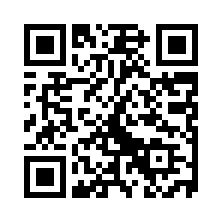Singular and Plural Nouns in English
Singular = 1
Plural = more than one
Plural nouns in English follow a few consistent patterns.
*) Basic Rule: Add –s
The basic rule for forming plurals is to add -s to the noun. Below are some examples:
- cat → cats
- book → books
- car → cars
- dog → dogs
- apple → apples
- banana → bananas
- orange → oranges
- bird → birds
- present → presents
- animal → animals
- pencil → pencils
- plate → plates
*) Add –es for Nouns Ending in s, x, z, ch, sh
Use –es for words ending in s, x, z, ch, sh
- bus → buses
- box → boxes
- quiz → quizzes (requires doubling the "z")
- church → churches
- dish → dishes
- fox → foxes
- match → matches
- lunch → lunches
- peach → peaches
- watch → watches
- wish → wishes
- brush → brushes
*) Irregular Plurals: No Clear Pattern
Some plural forms are irregular; they are called irregular plurals. Below are some examples:
- man → men
- woman → women
- child → children
- person → people
- foot → feet
- tooth → teeth
- goose → geese
- mouse → mice
- ox → oxen
- crisis → crises
- thesis → theses
- criterion → criteria
- phenomenon → phenomena
- stimulus → stimuli
- cactus → cacti
- focus → foci
- nucleus → nuclei
- fungus → fungi
- syllabus → syllabi
- alumnus → alumni
- octopus → octopi
- louse → lice
- datum → data
- curriculum → curricula
- appendix → appendices
*) Change –f or –fe to –ves
For nouns ending in –f or –fe, change –f or –fe to –ves:
- knife → knives
- leaf → leaves
- life → lives
- loaf → loaves
- thief → thieves
- scarf → scarves
- shelf → shelves
- wife → wives
- calf → calves
- elf → elves
- half → halves
- self → selves
Exception: Not all nouns that ending in -f change to —ves, some just add –s.
- chief → chiefs
- roof → roofs
- belief → beliefs
- chef → chefs
- cliff → cliffs
3. Nouns Ending in -o
Add –es for Nouns Ending in Consonant + o
- tomato → tomatoes
- potato → potatoes
- hero → heroes
- echo → echoes
- torpedo → torpedoes
- tornado → tornadoes
- domino → dominoes
- mango → mangoes / mangos *
- cargo → cargoes / cargos *
- mosquito → mosquitoes / mosquitos *
- volcano → volcanoes / volcanos *
- buffalo → buffaloes / buffalos *
* Adding -es is more common. But adding –s is considered acceptable too.
Add –s for Nouns Ending in Vowel + o
- zoo → zoos
- radio → radios
- studio → studios
- video → videos
- kangaroo → kangaroos
- portfolio → portfolios
- bamboo → bamboos
Exception: Nouns Ending in Consonant + “o” That Take –s, Not –es:
- piano → pianos
- photo → photos
- memo → memos
- casino → casinos
- piccolo → piccolos
- zero * → zeros / zeroes
- * "zeros" is more common and widely accepted.
- avocado * → avocados / avocadoes
- * "avocados" is more common and widely accepted.
4. Nouns Ending in –y
If a noun ends in a consonant + y, change y to ies:
- baby → babies
- city → cities
- story → stories
- country → countries
- spy → spies
- army → armies
- puppy → puppies
- butterfly → butterflies
- cherry → cherries
But if the noun ends in a vowel + y, just add –s:
- toy → toys
- key → keys
- boy → boys
- day → days
- birthday → birthdays
- monkey → monkeys
- guy → guys
7. Unchanging Plural Nouns (also called Invariable Nouns)
Some nouns have the same form whether singular or plural. No need to add -s or -es, even when you're talking about many.
- aircraft → aircraft
So whether you're talking about one jet or an entire fleet, you just say aircraft. No "s", no "es".
🛩 Singular & Plural Use of Aircraft
✈️ Singular Use
- “The aircraft landed safely despite the heavy fog.”
- “That aircraft can reach speeds of Mach 2.”
🛬 Plural Use (Same Form)
- “Several military aircraft were deployed to the region.”
- “The airport handles over 500 aircraft every day.”
Other nouns like this include:
- sheep → sheep
- deer → deer
- salmon → salmon
- tuna → tuna
- fish → fish
- species → species
- series → series
- trout → trout
- moose → moose
- bison → bison
- swine → swine
- cod → cod
- reindeer → reindeer
- offspring → offspring
- headquarters → headquarters
📘 Singular & Plural Use of Fish
🎣 Singular Use
“I caught one fish.”
🐠 Plural Use (Same Form)
“We saw ten fish in the pond.”
🌍 Plural Species Use
“The aquarium contains fishes from the Amazon, the Pacific, and the Atlantic.”
8. Plural-Only Noun
A plural-only noun refers to a noun that exists only in its plural form.
They all refer to things that are essentially one item, but made of two parts—so the plural form is the default.
These nouns don’t have a singular version, even when referring to just one item or concept.
- 👖 trousers
- 👖 jeans
- 🩳 shorts
- ✂️ scissors
- 👓 glasses
